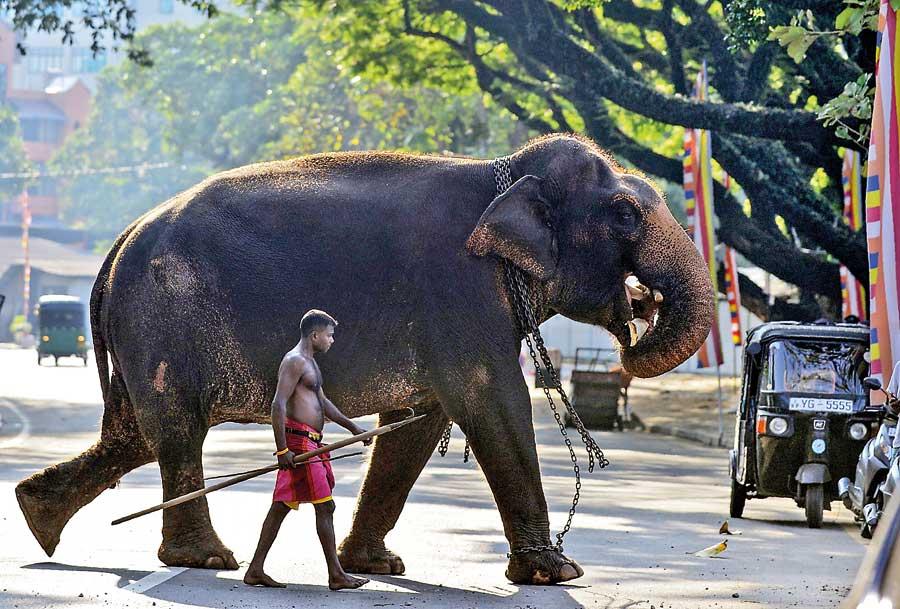Case Overview
The case involves applications for mandates in the nature of Writs of Certiorari, Prohibition, and Mandamus in terms of Article 140 of the Constitution of the Democratic Socialist Republic of Sri Lanka. The Petitioners are primarily challenging the Fauna and Flora (Protection, Well-being, and Regularization of Registration of Tamed Elephants) Regulations No. 01 of 2021 and the order of the Magistrate’s Court releasing elephants to their registered owners.
Parties Involved
- Petitioners: Various environmental and animal welfare organizations including Centre for Eco-Cultural Studies and Justice for Animals.
- Respondents: Several government officials and ministries, including the State Ministry of Wildlife Protection, the Ministry of Wildlife and Forest Conservation, and the Department of Wildlife Conservation.
Legal Background
The Petitioners argue that the impugned Regulations, issued under the Fauna and Flora Protection Ordinance (FFPO), are in violation of the Constitution, the FFPO, and the Offences Against Public Property Act. They claim the Regulations allow the unlawful possession and retroactive registration of elephants, which undermines the absolute prohibition on unregistered elephants stipulated in section 22A of the FFPO.
Key Arguments by Petitioners
- Contravention of Legal Provisions: The Petitioners argue that Regulation 5(2) and Regulation 6(2) of the impugned Regulations contradict sections 22A(7), 22A(12), and 23 of the FFPO, which declare the Sri Lankan elephant as public property and mandate the registration and licensing of elephants.
- Illegal Regularization: The Regulations allegedly enable the unlawful regularization of the fraudulent possession of elephants through retroactive registration.
- Usurpation of Authority: The Petitioners contend that the Regulations improperly transfer the authority for elephant registration and licensing from the Director General of Wildlife Conservation to a committee that includes external entities.
- Public Interest: The case is framed as public interest litigation, emphasizing the importance of protecting elephants from illicit trade and ensuring their well-being.
Key Arguments by Respondents
- Procedural and Legal Compliance: The Respondents, particularly the Deputy Solicitor General, argue that the Regulations were issued to address inadequacies in previous regulations and ensure the well-being of tamed elephants. They assert that the impugned Regulations are necessary and comply with legal procedures.
- Challenge on Maintainability: Respondents challenge the maintainability of the applications on grounds of non-inclusion of necessary parties, lack of locus standi of the Petitioners, and alleged ulterior motives.
Court’s Analysis
- Legality of Regulations: The court examines whether the impugned Regulations exceed the powers granted by the FFPO and whether they align with the statutory mandates.
- Public Interest and Judicial Review: The court considers the role of public interest litigation in addressing societal and environmental issues and ensuring that government actions comply with legal standards.
- Substantive Objections: The court evaluates the substantive objections raised by the Petitioners regarding the violation of constitutional and statutory provisions.
Judgment
The court decides to pronounce one judgment in respect of all four cases (CA/WRIT/420/2021, CA/WRIT/423/2021, CA/WRIT/431/2021, and CA/WRIT/433/2021). The judgment addresses the legality of the impugned Regulations, the procedural compliance of their issuance, and the substantive arguments presented by both parties.
Conclusion
The judgment addresses the balance between regulatory measures for the protection and well-being of elephants and the compliance with statutory mandates. It also underscores the importance of adhering to legal procedures in the issuance of regulations and the role of public interest litigation in upholding environmental and societal interests.
Download the Full Judgment:














